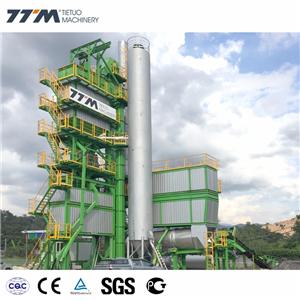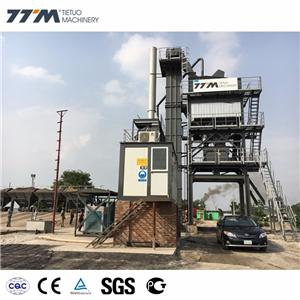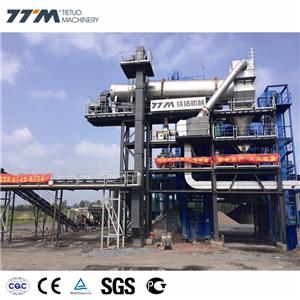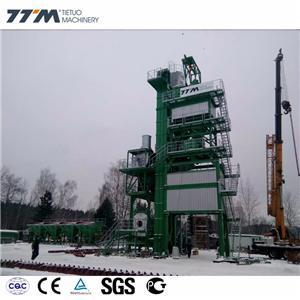Supply Discount asphalt bitumen productions plant Brands Company
asphalt bitumen production plant
Discount asphalt production Brands
Members of the parliamentary expressway panel of the parties released a report on the environmental, safety and performance benefits of warm blended fuels.
Warm mix asphalt can be produced at a temperature of 40 degrees Celsius lower than traditional hot mix asphalt, while the laying temperature of traditional hot mix asphalt is usually 190 degrees Celsius.
Depending on the product and the factory, the insulation material can reduce carbon dioxide emissions by about 15%. It also cools faster, opening work to traffic earlier, halving smoke for every 10 degrees Celsius reduction and creating a safer working environment.
Red tape and reluctance to try new ideas are said to be obstacles to wider promotion.
The material already accounts for 40 per cent of production in the US and more than 15 per cent in France, but only 4 per cent of asphalt production in the UK.
If all asphalt production in the UK were switched to warm asphalt, it would reduce at least 61000 tons of carbon dioxide, the equivalent of nearly 300m car trips, the report said.
British highway company, the British national road operator, estimates that by using warm blended fuel on its network, it can save ?70 million a year, resulting in a 20 per cent increase in shift production.
Richard Hayes, chief executive of IHE, said: "the use of warm asphalt in the UK will greatly reduce the carbon footprint of the road surface." However, this is not the only benefit because warm mixtures can restore traffic to the new surface earlier, thereby reducing delays. "
According to the association, the 100m tons of copper collected saved about 61.4 million cubic metres. Yes, the space in the landfill.
Audrey Copland (Audrey Copeland), president and chief executive of NAPA, said: "over the years, we have seen a steady increase in the use of rap music across the country." "this is the result of the concerted efforts of the industry and road owners to study and apply best practices to ensure that we maintain or improve our performance while increasing the use of recycled materials."
Supply bitumen production plant
Copland added: "with the growing interest in the application of other recyclable materials to pavement, we must continue to understand in depth the impact of new materials on pavement performance before they can be widely used."
Nationwide, the average number of new asphalt pavements built in 2018 was 21.1 per cent. This is the highest level since the Napa survey began in 2009.
The survey also found that the United States added 389.3 million tons of asphalt mixture in 2018, using 82.2 million tons of RAP and 1.05 million tons of recycled asphalt tiles.
Another 8.8 million tons of RAP and RAS are used as aggregates for cold mix asphalt and other road construction activities. In addition, the survey also found that by the end of last year, the United States had stockpiled about 111.7 million tons of RAP and RAS, for future use.
In July, GOIL, a Ghanaian oil company, and SMB (Societe multinational de bit, a French multinational in C ? te d'Ivoire, formed a joint venture to cut the lawn at a ceremony for the largest asphalt plant construction project in West Africa. According to GOIL, the project in Ghana, Tema, cost about $35 million. Annual capacity of 8000 tons, will produce AC10, AC20 asphalt and polymer modified asphalt (PMB).
John Peter Ameu (John Peter Amewu), Minister of Energy of Ghana, said at the ceremony: "because of the success of PMB, it has been shown to extend the service life of asphalt pavement. The Ghana Expressway Authority also plans to continue to use it for the resurfacing or construction of all major roads in the country. "
asphalt production plant Company
Ghana's road network of more than 63000 kilometres needs to be repaired and modernized. According to Investigroup, a management consultancy with an office in Ghana, reconstruction plans worth $1.5 billion a year will be needed over the next 10 years to bring roads up to good standards.
"the local government wants to be green, sustainable and environmentally friendly," said Brian Kent, technical director of Tarmac. " "I think these issues are more important to them right now. I do think we're going to get some motivation. "
In Britain, about 40 million tires are worn out each year. Although some waste is burned into fuel in cement kilns and some is made into broken rubber for use in playgrounds and car mats, there is still a surplus of 120000 tons of rubber waste. At present, these products are shipped abroad.
The tar gravel company has revamped seven of its 72 asphalt plants so that 1% of the rubber crumbs by weight can be added to the mixture. It is combined with warm mix additive Evotherm so that harmful emissions are not produced in the manufacturing process.Tarmac estimates that this is equivalent to 750 waste tires per kilometre of road surface.
As early as 2011, the company began investigating tire life (ELT) used in asphalt.Kent says the method they chose has been used successfully in the United States for more than a decade.
This process is between wet and dry and is used to add rubber to the asphalt mixture.




